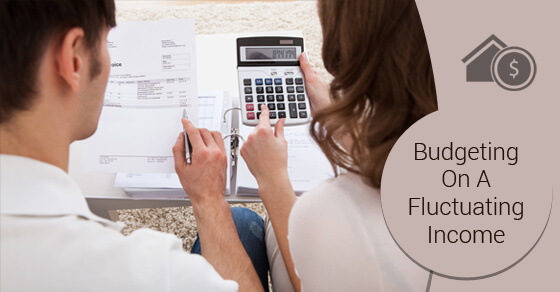If you are a freelancer or work solely on commission, your income may vary greatly. Trying to come up with a monthly budget when you collect a variable income is tough, but is far from impossible. Budgeting on a fluctuating income can be done, and you may even end up saving money at the end of the year.
Week, month, year
The first thing you should do is open a spreadsheet on your computer and start filling it in with your weekly expenses. List everything such as coffee, transit/gas, groceries, and all other consistent costs. Then expand your budget to include your monthly expenses like mortgage/rent payments, car expenses (lease payments), heating, cable and Internet.
Finally, include your yearly payments like subscriptions and income taxes. Once you’ve tallied up everything, set a yearly income target.
Income target
Let’s say you work as a freelance writer and charge $50/hour for your services, and assume you work about 20-30 hours per week, you will make approximately $1000 per week.
Take that number and multiply it by 52 weeks and you’ll get $48,000 per year. However, it is important to be realistic and assume that you will not take home that amount, but at least $10,000-$15,000 less. This will compensate for downtimes throughout the year, vacation time, taxes and flex money.
Treat your income target like it’s set in stone. Even if you make more money, it’s always better to budget like you’re making less. If you do make more than expected, you should put it in a savings account for a rainy day.
Emergency savings
Now that you’ve set your income target and have created a budget it’s time to determine how much you can put away into your emergency fund. This fund is to be used only for the unforeseen. For example, your car breaks down on the way to meet with a client, your laptop takes its last breath, or you may lose a contract and not be able to find work for a few months. Your emergency fund should contain at least six months of funding to get you through the hard times.
Hopefully, you never have to dip into your emergency savings. On the off chance that you do need to use some of this money, try and replenish it as soon as possible.
Extras
These extras include travelling, saving up for a down payment on a home, wedding, or other factors. Your extras are not as important as your emergency savings; however, it’s always good to keep some money aside to get away for the weekend. You work hard. You deserve it!
For more information, contact our trusted team today.

